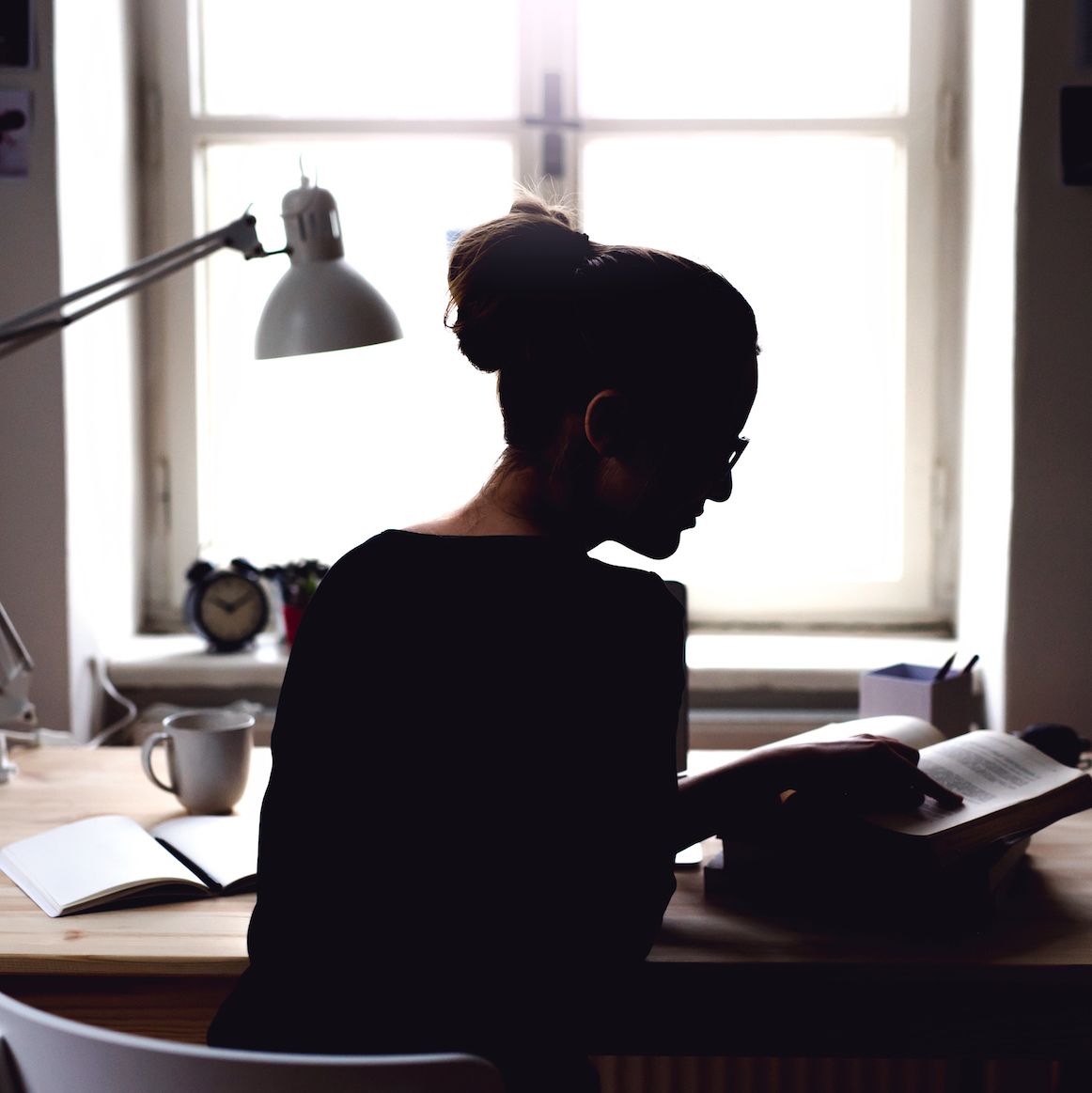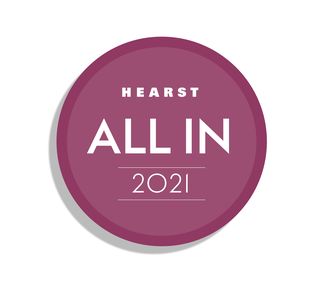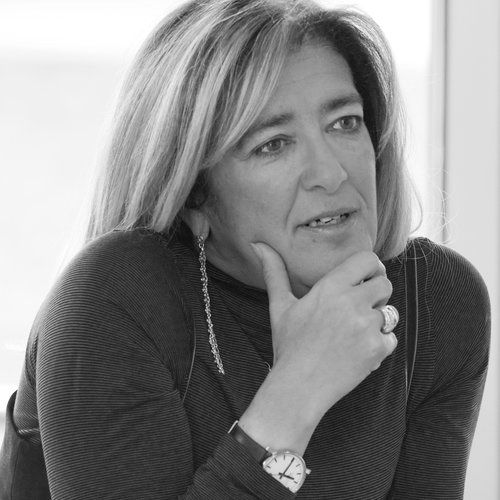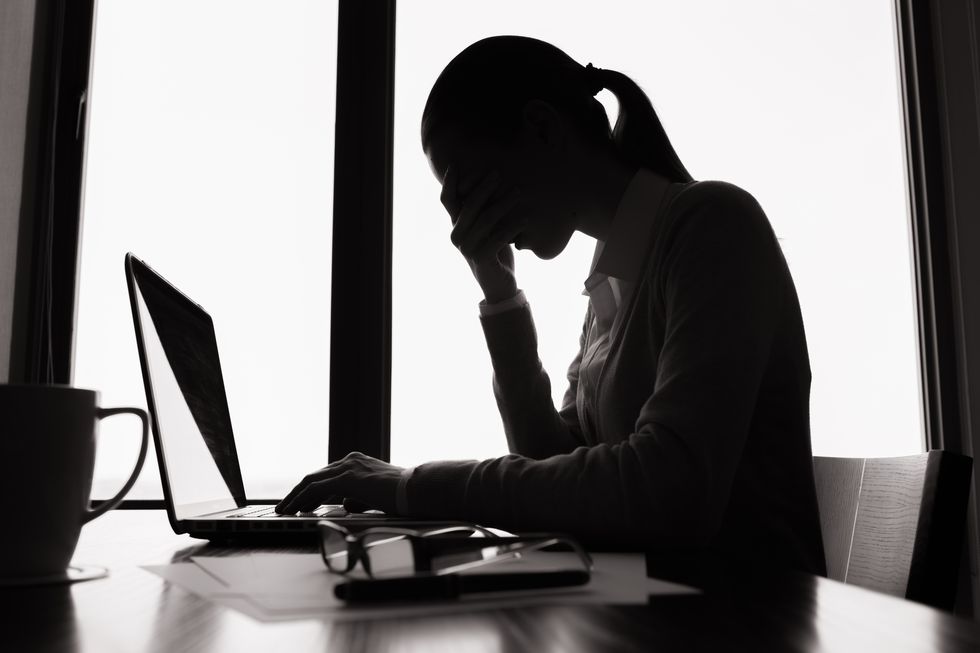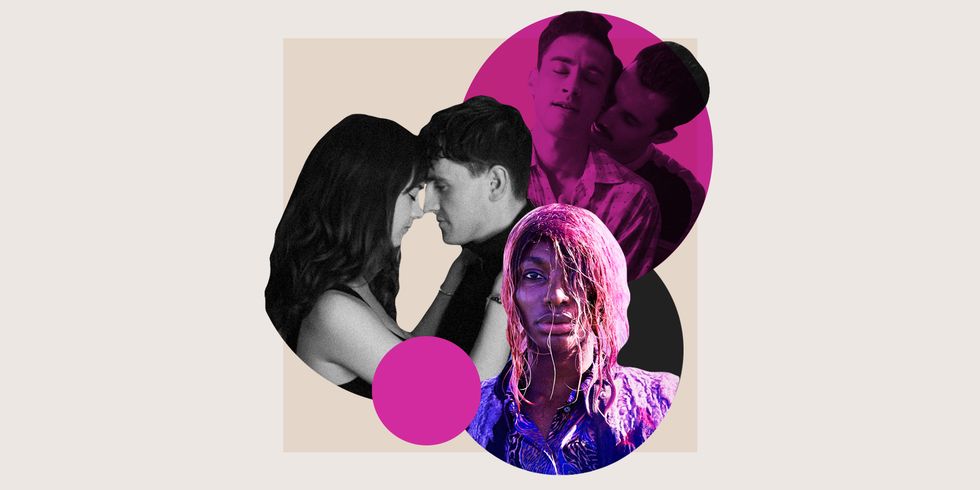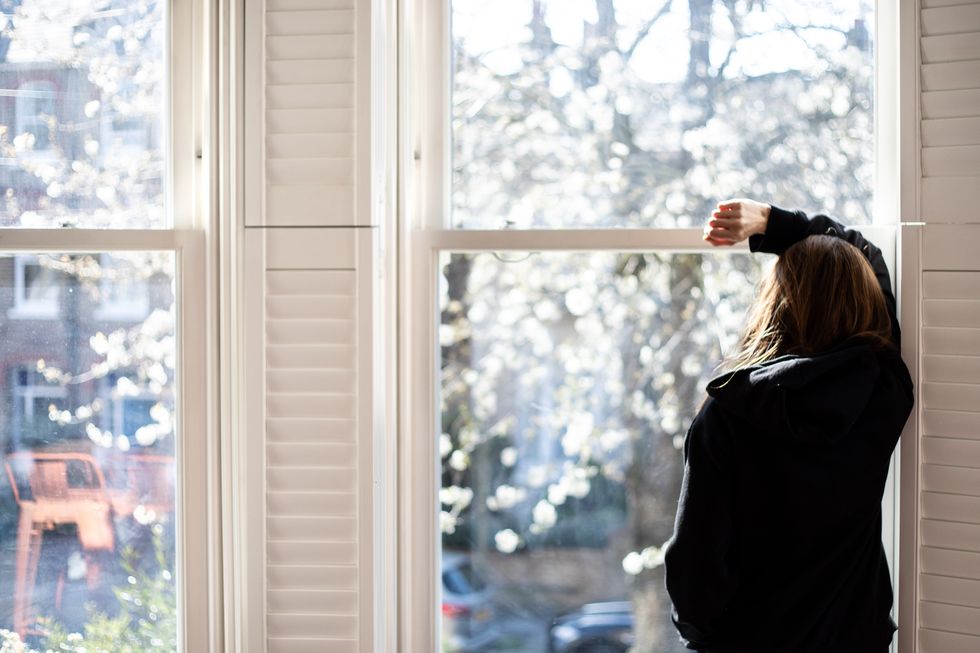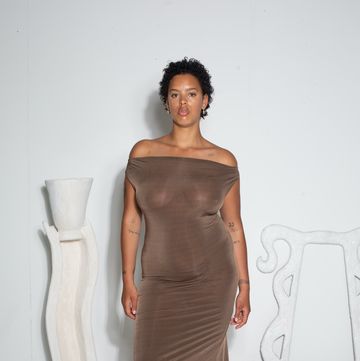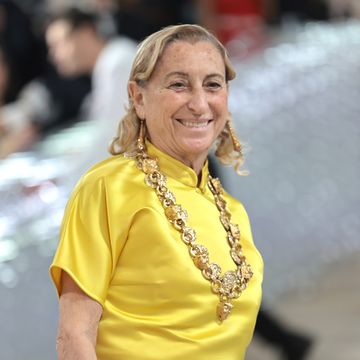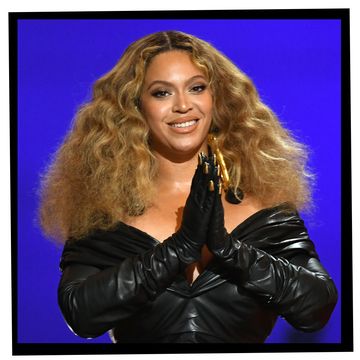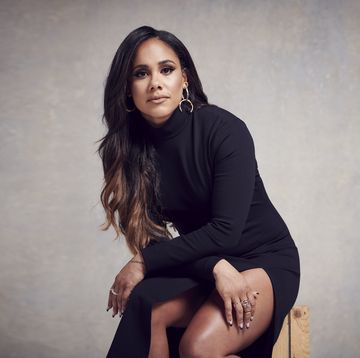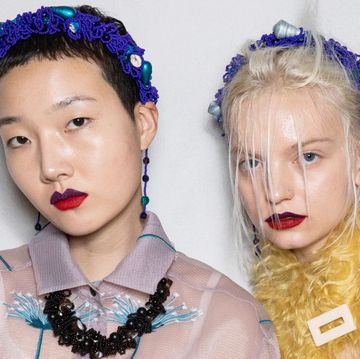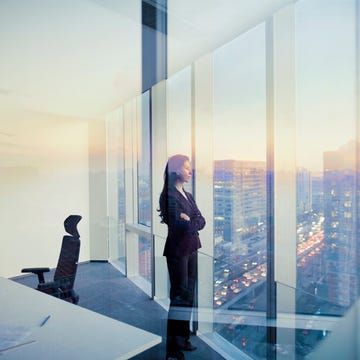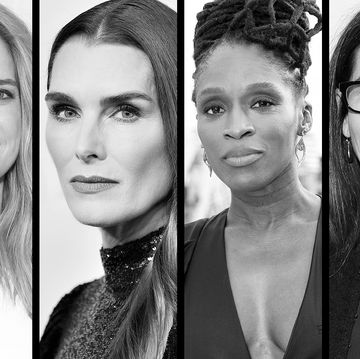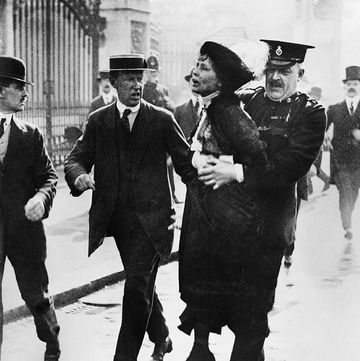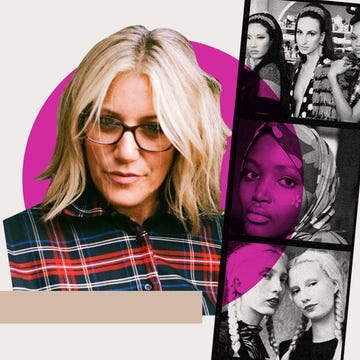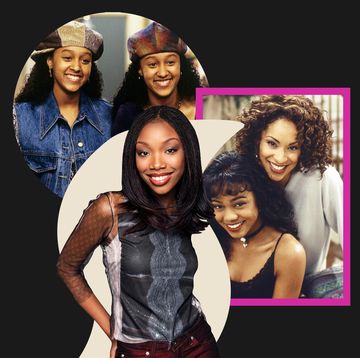Before the Coronavirus pandemic forced us all indoors, one movement in particular was in full swing.
Time's Up was conceived by Hollywood heavyweights in 2018, a few months after the first allegations of sexual assault against disgraced film mogul Harvey Weinstein came to light. The allegations catalysed a global mobilisation of women and men who had previously stayed quiet about their experiences of sexual assault and harassment to come forward in their hundreds of thousands, encouraged by the revived #MeToo movement, founded by the activist Tarana Burke. Over the following two-year period the movement galvanised. To mark the launch of Time's Up, A-listers including Emma Stone, Michelle Williams and Tracee Ellis Ross pledged their allegiance on the 2018 Golden Globes red carpet. The UK followed suit at the BAFTAs that February, with Emma Watson launching the movement with a £1 million donation. Before long, Weinstein was convicted of rape and sexual assault and is currently serving 23 years in prison. And other formerly powerful men stepped down from their senior positions as allegations had an industry-spanning domino effect.
And then the pandemic happened. Everyone, including the vulnerable women who were beginning to make strides thanks to progressive leaps made towards gender equality, were forced back inside and things went quiet.
For the Chair of Time's Up UK, Dame Heather Rabbatts, concerns as to the safety of women and what the future of equality looked like intensified as the threat of the pandemic and the consequences for society became more apparent.
'There were a number of concerns that we started to have and sadly, some of these are playing out,' she tells ELLE UK. 'From a broader perspective there's an impact on industries where many women and women of colour are working, then the impact of homeschooling, then there is the vulnerability of women and we've seen issues like domestic violence as the work and home have blurred into one. And I think, overarching all of these worries was whether the progress that was being made, would be pushed back.'
So, how far has the Time's Up and #MeToo movement been pushed back?
Women's jobs and economic stability
In February 2021, a New York Magazine cover went viral over its illustration over the state of women's employment in the US, following figures from the country's National Women’s Law Centre suggesting that women have lost '5.4 million jobs since the pandemic began'. Moreover, it stated that 2.1 million were 'dropping out of the workforce entirely', leaving the number of women working at its lowest level since 1988.
Having bore witness to the struggle in the creative sectors like the theatre industry, Rabbatts - who is the Chair of the Soho theatre - says the threat to women's jobs seems apparent here in the UK too.
'I think we're going to find patterns of unemployment which are going to have have a disproportionate impact on women and people of colour,' she says. 'If you're working in technology, you've probably never had it so good. There have been areas of the economy that have been booming. But women are still not as dominant in technology, as they are in other sectors. The impact of the virus has meant that some of the markets where you find many women and women of colour employed have taken a huge hit. '
When lockdown started last year, the Women's Budget Group warned that 98% of the three million British key workers earning 'poverty wages' below the breadline were women, with women from Black and minority ethnic backgrounds particularly overrepresented. In October 2020, the group shared findings which suggested that working-class women were the worst socio-economic group affected by the first lockdown, and that '43% of working class women did no hours of work in April compared to just 20% of women in professional or managerial roles'.
Many working women have also had another job added to their CV during lockdown, often playing substitute teacher to their children when schools were forced to close at the beginning of the pandemic in 2020 and again in 2021.
Though this has undoubtedly affected men who are fathers too, according to the statistics it's mothers who have taken the brunt of childcare duties. In May, The Observer reported that during the first lockdown it was British mothers who were 'typically providing at least 50% more childcare as well as spending around 10% to 30% more time than fathers home schooling their children'.
Sexual discrimination and harassment in the 'virtual' workplace
A key aim at the core of #MeToo and Time's Up is reforming culture that has led to so many individuals becoming subject to predators' advances, harassment and assault while at their workplace.
With many women forced to work from home due to the pandemic, it might be assumed that the shield of a laptop screen would serve as a refuge from workplace-based sexual harassment and discrimination. Unfortunately, there has been evidence to suggest this is simply not the case.
Deeba Syed, the senior legal officer at Rights Of Women, a charity which provides free legal advice to women in the UK, told us: 'Despite many more women working from home, sexual harassment at work has not stalled, and we have heard from many women whose harassers have adapted their methods to continue harassing women, such as through social media, the telephone and email, and in some cases, stalking them at their home addresses.'
In January, the organisation published survey results which showed that 45% of women who were subject to sexual harassment at work reported experiencing it remotely during the pandemic, with 23% reporting an 'increase of escalation' of the harassment while working from home.
'Through our sexual harassment at work advice line, we hear from women whose perpetrators are often in positions of power and authority, and have been able to leverage this power to further the harassment during the pandemic,' Syed explains. 'Women like Lauren*, whose boss had furloughed the rest of his staff, so he was able to harass her at work without any witnesses.'
Felicia Willow, the chief executive at gender equality organisation the Fawcett Society, echoed these concerns in a January blog post, writing: 'Women have said that harassers have found their personal phone numbers, or turned up outside their homes. There have also been reports of male managers telling women to attend video calls wearing more make-up and “sexier” clothing.'
As well as harassment, discrimination occurs too despite separation by physical space, says Rabbatts.
'We've certainly become concerned about the "wall" between work and home life breaking down leading to behaviours leaking across in different ways. So when we look at microaggressions like [women] being interrupted, it's happening all the time on Zoom calls. These forms of behaviour are manifesting in different ways.'
Rabbatts' concerns are furthered due to the instability of the UK economy, where the pandemic has seen the biggest decline in the GDP since the Great Frost of 1709 and unemployment rates now at a five-year high.
'It's about women being confident to exercise their rights, when we're still in a very vulnerable place,' she explains. 'If you're fearful of losing one of those few jobs, and you know how hard it is to get work then that is, I'm sure, going to lead to “well I just won't say anything”.'
What progress has been made?
Rabbatts is keen to stress that it's not all doom and gloom for the Time's Up and #MeToo movements, particularly in the film industry where Time's Up advises. She signals to the recent improvement in diversity for both the BAFTA and Oscar nominations, which saw more women and female-directed films and people of colour recognised, suggesting a change in the status quo. Rabbatts also stresses the developments in production, like new clear 'frameworks for tackling bullying and harassment' and the normalisation of intimacy co-ordinators on hit shows like Normal People and I May Destroy You.
'There's work that we do reminding all actors about their rights,' Rabbatts adds. 'People like Keira Knightley have spoken out [about this] recently. I think the more that some of these actors who have huge profile speak about this subject, it lifts up the safety for everybody.'
She's also encouraged by the strength and resilience women have shown during this time, from the women who organised racial justice movements last summer, to frontline workers sacrificing their safety for the public (note: more women are key workers than men), as well as carers in the home, who are also predominantly women.
What needs to be done for women's rights as society opens up?
As we prepare to enter back into society and, for many of us, return to work, campaigners are clear that the hard work done to advance women's rights before the pandemic should not be forgotten.
Rabbatts hopes HR teams have structures in place to ensure women feel safe and respected at work especially after the shock that came with a drastic change of lifestyle during lockdown.
'HR departments have to be insightful about both the obvious impact of the pandemic, as well as the less obvious,' she notes. 'We know there are issues around senses of wellbeing and mental health coming out of isolation. How is that going to make you feel, as a woman? It might make you feel increased vulnerability to being in a situation where you're outnumbered by men, and just the sheer physical presence at times can have a daunting impact.
'I know from my own experience that I can often be in meetings where I'm the only woman or person of colour. The contrast between being in isolation and then being in a shared physical space is going to be challenging, and it's incumbent on everybody in those situations to be respectful of space in a way that we wouldn't have been before.'
It's also on all of us, men and women, to speak up when we see injustice in the workplace too, remembering the lessons #MeToo taught us about the dangerous consequences of brushing unacceptable behaviour under the carpet.
'This doesn't just apply to the person who has experienced harassment,' Rabbatts says. 'It's also for those who witness it. It's the responsibility of everybody. If you are in a room and you see that somebody is being treated in a way that is not respectful, that is bullying, that is harassing, you have a responsibility to speak out. I think [there should be] basic encouragement from HR and company leadership to say, "we do not want to see this behaviour and that it is all of our responsibility to tackle it".'
The calling for change has to continue too. These problems start in society and Rabbatts reminds us that Time's Up and #MeToo are aiming to change the culture in order for it to transcend through to the workplace.
'We haven't eradicated harassment, bullying and microaggressions,' she says. 'We are tackling it but this is something that has to stay focused upon. Ultimately, this is about shifting culture. This is about having equity in terms of representation.'
Like this article? Sign up to our newsletter to get more articles like this delivered straight to your inbox.
In need of more inspiration, thoughtful journalism and at-home beauty tips? Subscribe to ELLE's print magazine today! SUBSCRIBE HERE

